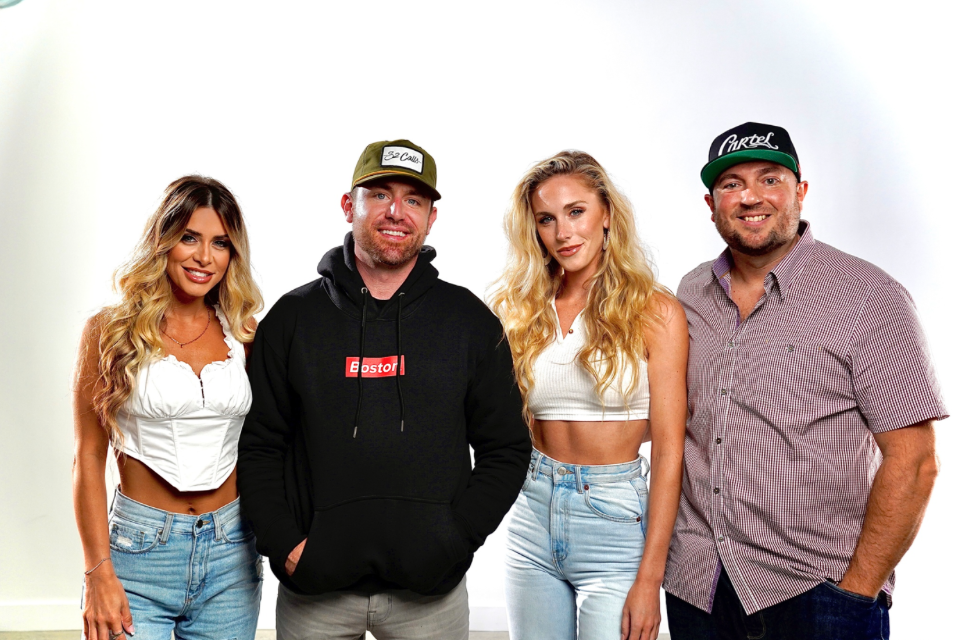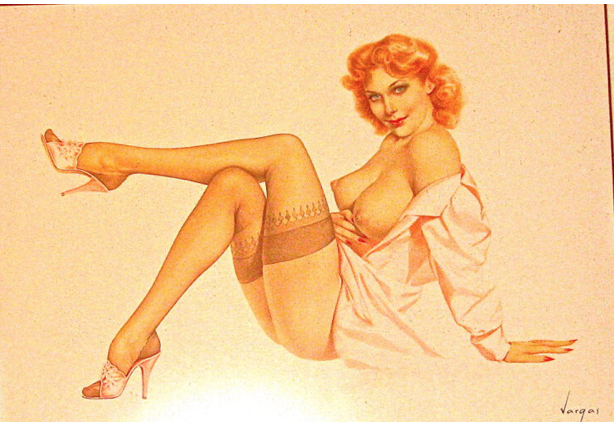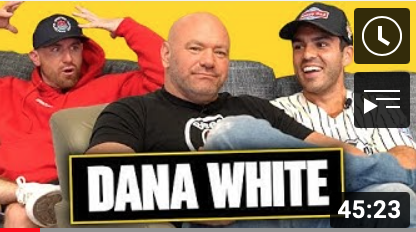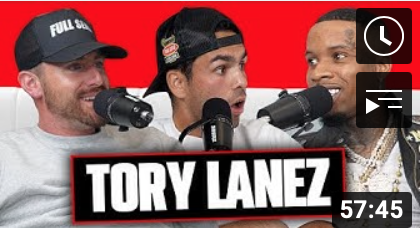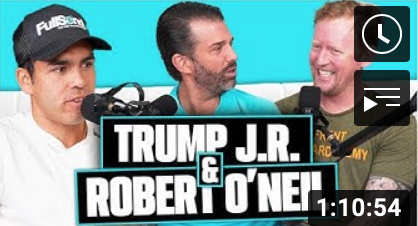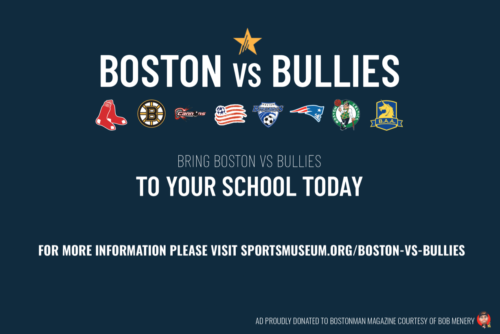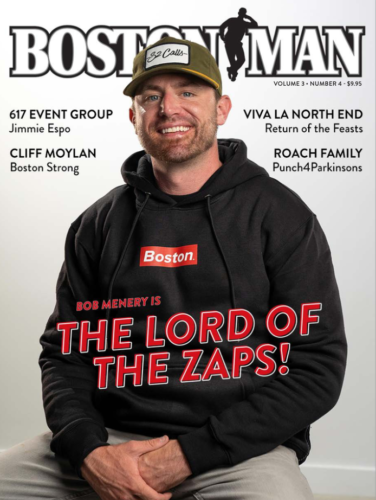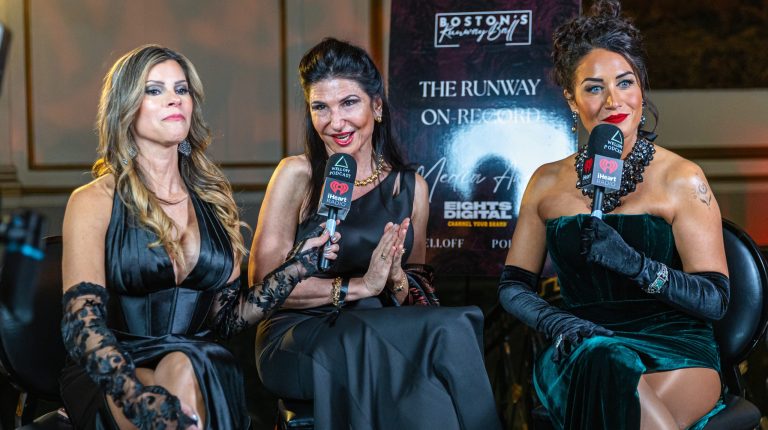“I don’t care about the fame or the money. For me, it’s all about the game.” -Bob Menery
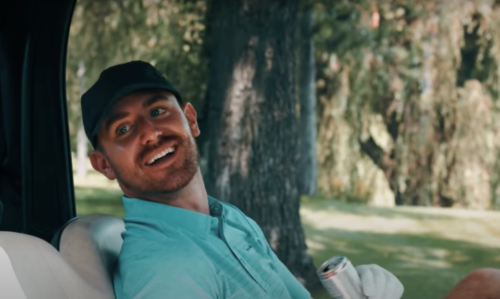
AMERICANS have always had a romanticization with the idea of “over-night success.” The notion that one day, you are relatively unknown or somewhat overlooked in your field, and then the next, “poof!” you are at the top of your mountain.
With modern day technology and the power of social media, the apparent gap between where you are now and where you could be is even further bridged. Literally, it would seem, everyone is holding their shot at overnight success in the palm of their hands.
Chances are, before the spring of 2017 you had never heard of Bob Menery. Although always having a knack for entertaining people, and clearly a gift with what is now widely known as “The Golden Voice,” Menery -outside of a few circles- had yet to catch his break.
And then “that video” happened.
Four years later Menery, if not already on top of his mountain, is very much ascending its peaks. With a number one world rated podcast, his own arena football team, his hands in NASCAR, three million followers on Instagram (whom he entertains daily), and quite possibly the most extensive -and influential- network in the world, it would appear Menery has achieved that elusive overnight success.
But what if I told you this was all calculated? What if, all along, this was part of Bob Menery’s plan?
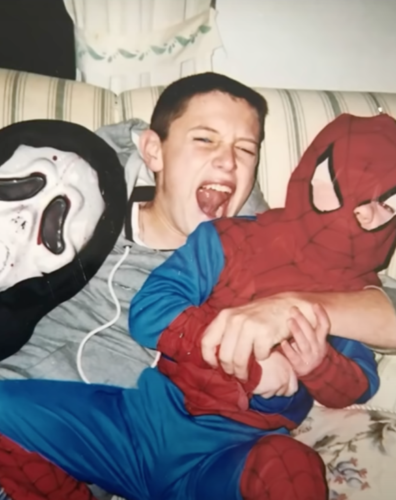
Part I – Early On
Born in Lawrence, MA Bob is the youngest of three children to Mark and Patty Menery, who raised the family in a lower-middle class neighborhood.
Along with his siblings, Heather and Mark, Bob learned the gift of the gab at an early age from his father Mark, a natural networker as an insurance salesman, and the strength of nurture from mother Patty, who primarily stayed home to raise and take care of the children.
“They are the greatest parents in the world,” Bob proudly states. “They’ve always done everything they can for us.”
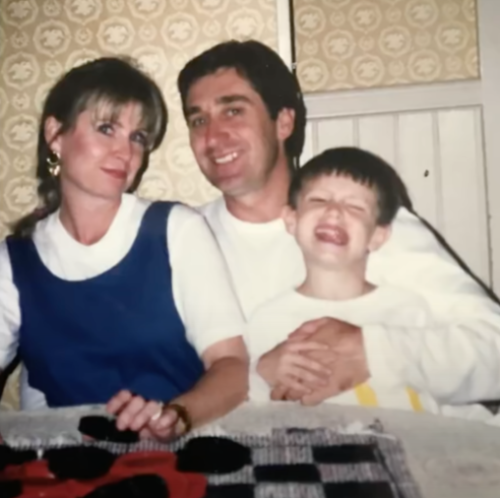
The family would relocate to North Andover while Bob was still a young boy, and for the next nine years he attended St. Michael’s Catholic School, where he was known, from time-to-time, to have an occasional run-in with a nun.
“It wasn’t that I was bad kid,” Bob explains. “I just always liked to entertain people. I was more about getting a laugh, than getting good grades. Maybe, I didn’t take school quite as seriously as I always should have, but it was more fulfilling for me to see the smiles on other kids faces after I had done something.”
Unfortunately, those smiles often came when Bob “had done something” in the middle of class.
“I spent my share of time in detention,” Bob admits with a laugh.
Following St. Michael’s, Bob was off to North Andover High School. He was big into sports and most things teenage boys are, going to a lot of games, and developing a dire passion for the local teams that a lot of New Englanders share.

“I remember during the ’04 series when the Sox were down 3-0 to the Yankees, just standing on the side of the road with a sign by myself trying to help rally everyone,” Bob says. “David Ortiz went on to have that monster series, and we came all the way back (to win the series against the Yankees) and then ended ‘the curse’ (folk lore believed in Boston and New York put upon the Red Sox by the baseball gods for trading Babe Ruth) and won the World Series.”
Around this time, Bob would also begin turning the television sets down during games and practice sportscasting with his buddies. Rather, than simply commentate the way games are traditionally called, however, Bob began experimenting with his own twist.
“Even then, it was all about entertainment,” Bob emphasizes. “I wanted my buddies to laugh, I wanted them to be amused by my broadcasting. Basically, it was a version of what I do now, just on a much smaller scale with a much smaller audience.”
His friends, as it turns out, were more than amused, they were outright impressed. Bob had a voice for sportscasting unlike anything they had ever heard, at least amongst the lands of the North Shore of Boston. His voice was distinct, they told him. It belonged in a booth somewhere.
“I think I get a lot of that from my father,” Bob explains. “He was always doing voice overs and other sorts of gigs, and to this day still sings for his band. I guess you can say I inherited parts of ‘the voice’ from him.”
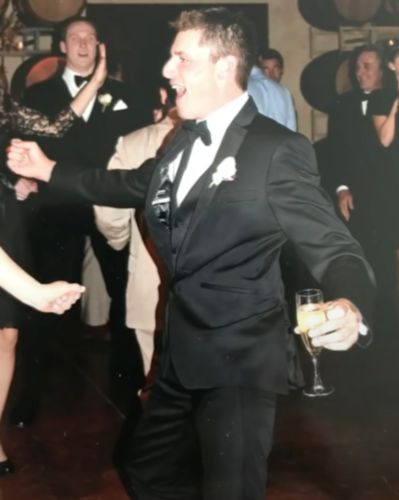
Part II – New York
Fueled by the emerging talent of his larynx, and the momentum it was picking up for him locally, Bob decided to enroll at the New York Film Academy following high school. With aspirations of parlaying his skillset and aptitude for entertainment into a career in acting, Bob arrived in the Big Apple with big dreams.
Things in New York, however, didn’t quite match the script Bob had in his mind:
“Actors can really be out there,” Bob reflects. “They had me crawling around the set telling me to be a giraffe, and then turn into different kinds of animals. There were guys hopping around on stage pretending to be Peter Pan…”
It was a lot to take in for a young man who just wanted to entertain and make people laugh.
“I have all the respect in the world for actors,” Bob laments. “I just couldn’t take it that deep. It wasn’t for me.”
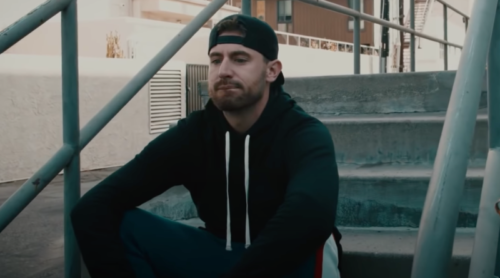
Realizing things weren’t progressing in the direction he envisioned, Bob came back home to Boston to regroup.
His friends, having not forgotten how entertained they were when Bob would “broadcast” games for them in the living room, remained convinced he should be sportscasting somewhere.
“I remember being back home around this time, and one of my buddies asked me if I could hypothetically trade places with Don Orsillo (now play-by-play announcer with the San Diego Padres, and at the time with the Red Sox) would I do it?” Bob says.
“I thought about it. Yes, it would be nice to have the job security, some financial independence and be in the local market (Boston). But deep down I knew there was another path out there for me.”
And if that path were to involve the entertainment industry, why not be in the entertainment capital of the world?
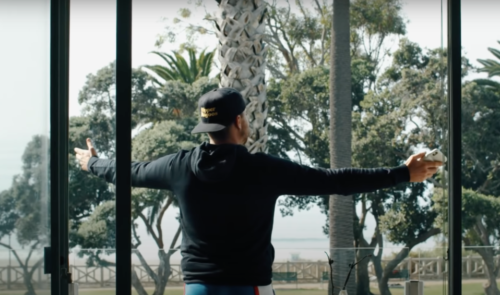
Part III – Los Angeles
Bob arrived in Hollywood, with a slightly revised plan. He hadn’t given up acting, per se, but he was ready to pursue other avenues as well, namely comedy. He also had another skill in his back pocket: he was a scratch golfer and certainly knew his way around the greens.
“Here’s the thing with LA,” Bob explains. “Everyone out there wants to be some sort of actor or comedian so it’s not like you can just show up and start making money. It’s super competitive.”
But Bob knew he had to make money somehow while beginning the process of carving a name for himself in the City of Angels. So he applied to Wilshire Country Club, a luxurious -and also competitive- golf resort to seek employment.
“I told them I had been a caddy at the Masters,” Bob says with a shrug. “They didn’t check, so I got the job.”
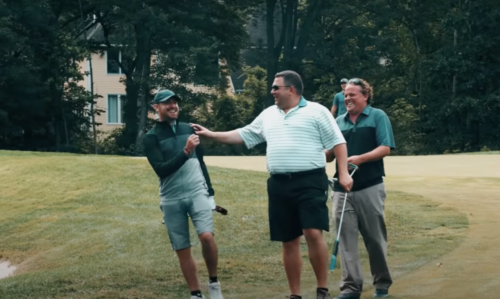
Caddying for the clientele that passed through WCC allowed Bob to make many prominent connections in LA, building up his burgeoning network. Before long, he found himself being included on guest lists at exclusive venues and receiving invitations to some of the better schmoozing parties in the city.
Bob took the opportunities with this new found access to test his developing material and comedic routines on various audiences whose approval is often coveted in the entertainment world.
“I never sat still at these parties or events,” Bob reveals. “Every time I had a chance to be in front of people, I would go up to strangers at various tables, introduce myself, and try and make them laugh.”
At this point, Bob had refined a schtick involving Tom Brady, Aaron Rodgers, and Sunday Night Football, using that -you guessed it- sportscaster voice, and it was beginning to catch on among circles in the LA nightlife scene.
“One thing about me, is I was always working,” Bob maintains. “I might have been out having a good time, but I was always paying attention to how people reacted to my material. I would come up with new skits and jokes based off of that. Some of the best contacts and deals I’ve ever made have come at 3am.”
Taking the leap from small groups at parties to performing at actual comedy clubs though, still remained a hurdle.
“Fear is a very interesting emotion,” Bob assesses. “Even though I knew I was good and still getting better. I just didn’t feel I was ready to take the leap. Every time I would sign-up for a comedy show, right before I was about to be called to stage I would get cold feet and leave the club.”
Regardless, he was still making progress. And each morning on the golf course, Bob was carrying the bags and rubbing elbows -building connections- with people he could learn from.
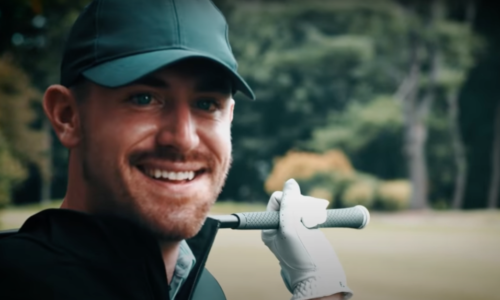
“Will Ferrell was a great guy to caddy for,” Bob asserts. “I would get to spend 18 holes, picking his brain, building a bond, and just getting a chance to be around the very best of a profession I was trying to do.”
Bob’s innate ability to connect with people made him a requested caddy for many at The Wilshire. Among them, the aforementioned Rodgers.
“Aaron and I got to be close and still are to this day,” he says. “I even lost his putter once on the 18th hole, but he was cool about it. He’s a great guy.”
Things were moving in the right direction for Bob. And then suddenly everything changed.
Part IV – Rock Bottom
“It sort of came out of nowhere,” Bob says with a sigh.
Nowhere, in this case, being the day he found out his roommate was moving to Texas, leaving Bob with not much time to figure out new accommodations.
“There really wasn’t any options for me,” Bob reflects. “I didn’t have any money, there wasn’t anywhere for me to go, so I decided I would try living out of my car.”
What was meant to be a one week experiment turned into a month, and then two. Bob would shower and freshen up every morning at the local YMCA before heading into work at the country club. Business as usual.
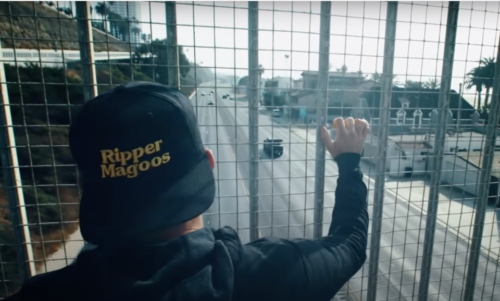
He was still going about his day-to-day activities best he could and tried to remain focused on why he was in LA in the first place, but the momentum he had been picking up didn’t seem to have quite the same zest.
“At the end of the day, I could have found somewhere to go,” Bob asserts. “But I guess I kind of did it in a way to punish myself. I wasn’t where I wanted to or felt I should be. At that point, I didn’t feel like I deserved anyone to help me.”
Bob discloses it was also during this time that he struggled with substance abuse to some extent. He chooses not to look back and dwell on it, but it is something he acknowledges he went through.
“I was fortunate enough to have a buddy, Ernie Giapapas, that just knew I wasn’t right,” Bob expresses. “One night he came out and found me and basically said enough is enough. You’re getting on a plane and going back to Boston.”
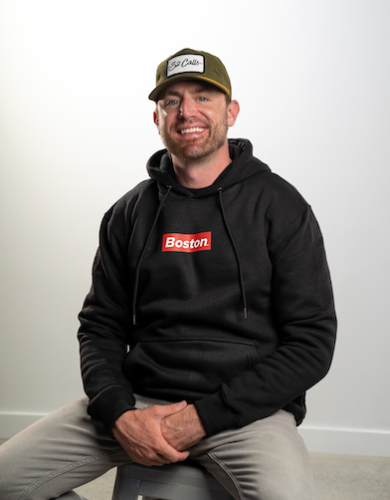
Part V – Shipping Back to Boston
Back home on the cozy confines of his parents couch, Bob was just beginning to hit the reset button, when there was a knock at his parents door.
“Get in the car, we’re going to find you a job,” said Heather’s husband Joe, Bob’s brother-in-law.
After a brief drive, Joe pulled into Leary’s Fine Wines & Spirits in Newburyport. Bob looked over at his brother-in-law somewhat befuddled.
“This is where you want me to apply?” he asked.
“You have to start somewhere,” Joe replied.
With that, Bob went into Leary’s and filled out the application, still not totally sure if this was the best course of action.
Later that evening, he received a call with a job offer. “Leary’s calling back already?” Bob wondered.
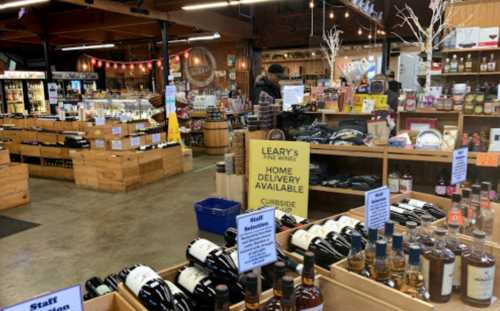
It was an old-friend, You Tube musician Mike Constantino. He needed an extra for a new video he was filming that night. It would be a quick pay-day. Bob was in.
Following the shoot, Bob was exhausted. He had only been home for a few days since LA, and hadn’t totally gathered himself yet.
But here’s the thing about Bob Menery. He’s ALWAYS working. ALWAYS practicing his craft. Naturally, there was an after party following the video shoot, and as fate would have it, Bob was sitting on a couch next to David Justin, someone Bob had never previously met.
And then it happened. Bob did his schtick, the one with Tom Brady, Aaron Rodgers, and Sunday Night Football.
David pulled out his phone. He knew rare talent when he saw it. That’s when “that video” was recorded. Within days David had it sent and circulating at BroBible. Bob Menery had gone viral.
“David Justin played a huge part in all of this,” Bob emphasizes. “He saw what I had, recorded it, and knew exactly what to do with it.”
The two biggest tools in Bob’s toolbox had just come together on the same night: his “Golden Voice, with his skit. Combined with his ability to connect and resonate with strangers.
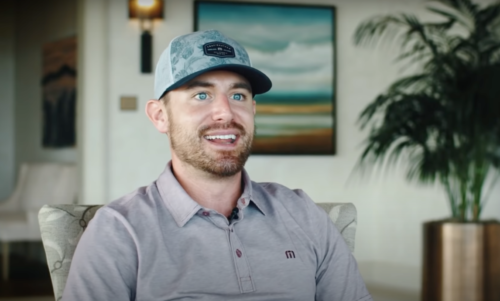
Part VI – Sky’s The Limit
Things started happening fairly quickly at this point. Bob doubled down on the BroBible exposure and sold the clip to Storyful “for something like $500.”
The bet paid off almost instantly. Storyful enhanced the momentum Bob was picking up and before long it seemed every sportscaster, athlete, and public personality were following and/or reaching out to him on various social media accounts.
Ever the networker and connector, Bob began to see multiple angles developing for him.
“I began somewhat aggressively reaching out to the people that were following me,” he explains. “You have to realize, everyone that follows you did so for a reason. They are at least remotely interested in whatever it is that makes you, you. So I just started conversations with various people to see where it could go.”
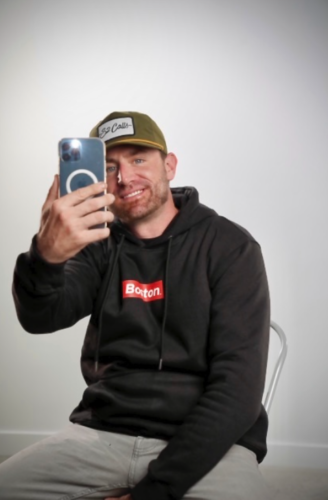
One being Scott Van Pelt of ESPN, senior anchor for SportsCenter.
“I sorta just dug at him,” says Bob. “I kept saying ‘hey, hopefully I can get a mention on SportsCenter some time’ I knew he liked my stuff. I basically stayed on him, and then eventually he gave me a plug.”
Shortly thereafter, Bob, received a call from NFL All-Pro Richard Sherman, who had become a good friend of his.
“Richard is an all-around amazing guy. I took his call outside of a pub in Boston, and said ‘I don’t know what the heck to do, I’m getting all of these calls and offers, how do you make sense of any of this?’”
Sherman had the answer.
“He hooked me up with Mitch Eisenberg, who became my first manager,” Bob remarks. “We got on a three way call, and Richard basically said ‘Mitch, you need to take care of Bob.’”
And Eisenberg had the perfect gig.
A popular national wings chain, with a concentration on sports and beer, was looking for an official voice over spokesperson. The competition for the position would be stiff, Rich Eisen of ESPN among others were being considered, but the position, Eisenberg reasoned, was right up Bob’s ally.
The company agreed. After a single audition, and hearing the “Golden Voice” Bob was inked to a 3-year deal with the popular chain.
“It was a good run, a lot of fun,” Bob says of the gig. “The deal just expired this summer and I’m looking forward to whatever is next. I can never sit still, it’s on to the next project.”
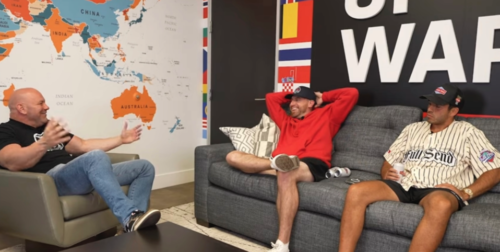
Part VII – Always Moving Forward
“There’s a lot of things in the works,” Bob discloses. “People see the meme’s and the voiceover sportscasting, but honestly, that is just a small part of where the brand is and where it’s going.”
For example, Bob’s arena football team, the Zappers, recently signed former All Pro receiver Josh Gordon to a four game contract, with hopes of helping him land a spot back in the NFL.
“I told Josh, ‘Listen, this is way beneath you talent wise, but if you come play for me for four games, play unbelievable, and stay clean (Gordon, himself has had substance run-ins during his prior NFL stint), I will use every connection I have to get you back on a team in the League.”
Gordon has held up his end of the bargain, appearing to many observers now to be as focused as ever.
“Now it’s my turn,” Bob says. “I’m not sure exactly how yet, but hopefully by the time you are reading this, Josh Gordon is back in the NFL.”
Then there’s NASCAR, where Bob has been sponsoring cars and dabbling with a potential deeper involvement on the racetrack.
At the root of all of the projects and deals, however, will always be Bob’s ability to make connections, and furthermore connect others with each other.
“I spend a lot of time listening to people and focusing on their personalities,” Bob explains. “I’m pretty good about making observations about people and connecting those that can have a mutually beneficial relationship.”
“My father taught me at an early age, and this has always stuck with me,” Bob conveys. “That it is important to always be the underdog. It’s important to always stay humble, don’t let success or money get to you. People like underdogs. They’re easy to root for. Keeping this mindset, and being an underdog helps to make me approachable. It makes me relatable. That’s a big part of how I have always been able to make connections.”
And of course, there’s always that Golden Voice, which will forever attract potential voiceover gigs that could catch Bob’s eye. In fact, he may even see a voiceover reunion with his love for wings and beer in the future:
“That would be cool,” Bob suggests with a smile. “So Hooters if you’re reading this, feel free to reach out.”
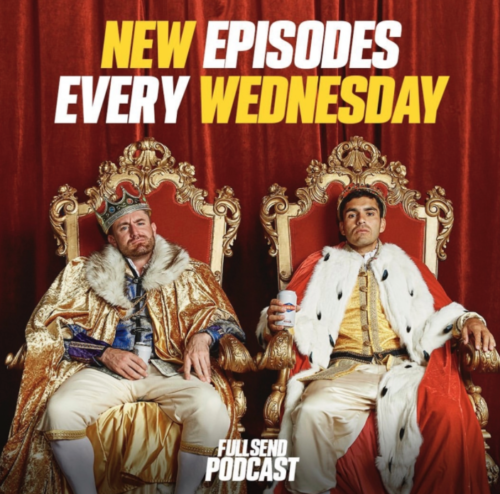
Part VIII – The FULLSEND Podcast
The ability to connect was as pronounced as ever when Bob was able foster a relationship between UFC boss Dana White and You Tubers the Nelk Boys, which has now led to a partnership with forthcoming ventures between the two.
In fact, on August 4th, Bob launched the latest version of his podcast, co-hosted with none other than Kyle Forgeard of the Nelk Boys, called the FULLSEND PODCAST, which in its first few weeks has absolutely turned the podcasting universe upside down. The first four episodes –Dana White Week 1; Tory Lanez Week 2; Donald Trump Jr & Robert O’Neil Week 3; and Shaq Week 4- have already surpassed fifteen million views collectively, and with a stable of influential guests lined up, the momentum shows no signs of slowing down for the foreseeable future.
“I’ve already had two top rated podcasts with Ripper Magoo’s and Zapped, but those shows came and went for various reasons,” Bob declares. “But FULLSEND is here to stay, I promise. The goal is to be number one in the world. Pretty sure we’ll be up there with (Joe) Rogan and the big dogs.”
And by world, Bob means the ENTIRE WORLD.
“I’m currently working on something with Kim Jong-un in North Korea,” Bob reveals.
Yes, you just read that last line correctly.
“The goal is to get him on the podcast some time in the near future. We’ll figure it out. Maybe I’ll even go there to record it.”
Part IX – Giving Back
With the platform Bob has built, he recognizes the importance of using his voice -both literally and figuratively- to help give back to the community.
The nurturing soul that his mother harbored in him as a young boy, has always stuck. It’s a big part of the reason he takes joy in making people smile, making them laugh.. making them feel good about themselves.
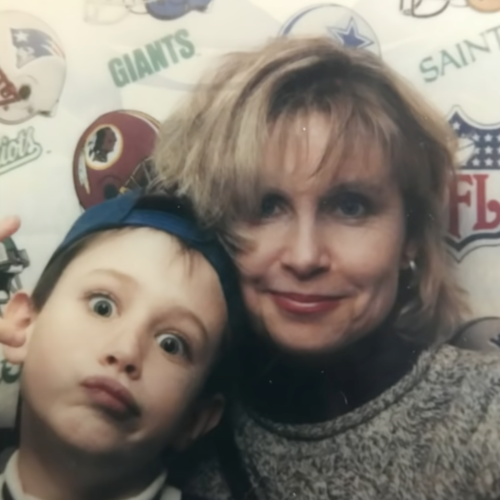
So naturally, you can imagine how Bob feels about those that intentionally do the opposite to others:
“If you bully someone you are a pussy. That has to be my absolute biggest pet peeve, to see someone getting bullied, stuff like that, especially to kids. If you are a bully, and you do that to people, you are the biggest pussy. And please put that on record.”
To that end for the release of this magazine, Bob and BostonMan Magazine have partnered with BOSTON vs BULLIES, a tremendous non-profit that works with all of the professional sports teams in the city to send athletes to schools and to provide educational videos that speak up to the dangers of bullying. You can find the ad donated by Bob to this wonderful organization on page 51 (print edition) in this magazine.
Part X – “Overnight Success”
Defining success is one of the most written about, debated, and subjective topics ever discussed.
While there may never be a clear cut definition on success, universally, we do have a working rule on how to get there.
In his brilliant book, Outliers, Malcolm Gladwell repeatedly mentions the “10,000-Hour Rule” with success, claiming that the key to achieving world-class expertise in any skill, is, to a large extent, a matter of practicing it and refining it, for a total of around 10,000 hours.
The truth is, there is no such thing as “overnight success” even if you were relatively unknown in the Spring of 2017 and then -it seemed- just like that you had gone globally viral.
Because prior to that moment…
You had spent hours as a young boy learning the gift of the gab from your father. You observed your mother’s kind soul and modeled how to treat people after.
You took joy in making others laugh and entertaining them, often getting in trouble at school as you learned more about what makes you funny.
You turned the television down for countless games practicing your voice with sportscasting. You put yourself in awkward situation at film school to learn more about where your comfort levels are with your form of entertainment.
You spent endless hours on the golf course picking others brains and learning from those who had been before where you were going.
You never took a night off, even at a party or event, repeatedly practicing your craft on anyone that would give you an audience.
You learned to harness the powerful emotion of fear by bringing yourself to the brink of situations you weren’t sure you were ready for yet.
You isolated yourself, and by doing so during your darkest hours were able to make discoveries about your product that made it even better.
You see, when Bob Menery took a seat on the couch next to David Justin at 2:30am at the after party of a video shoot in the Spring of ‘17, he wasn’t about to “stumble upon overnight success” -he was about to unleash his skill, his product, that he had dedicated an entire lifetime -10,000 hours- at mastering.
The world was just about to see it for the first time.
“It’s actually been quite calculated from the beginning,” Bob grins. “Catch me if you can…”

